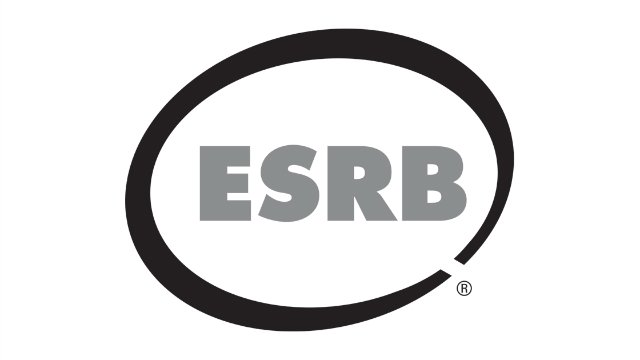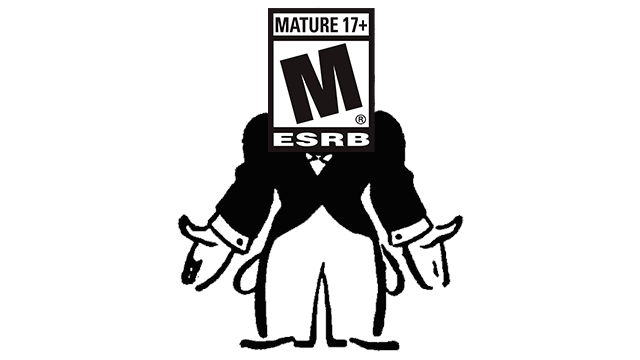It seems like following a tragedy practically every form of entertainment comes under fire, but politicians especially love to attack video games. Games are a new enough medium that a lot of people who make up the voting population of the United States (old people) are entirely unfamiliar with their content outside of what they see on the news. This makes them a perfect target for politicians that want to seem like they’re doing something to prevent another tragedy from occurring.
The latest hat trick that will solve the lack of mental health screening and care programs in the United States and prevent all future school shootings comes from Rhode Island state representative Robert Nardolillo. Nardolillo has proposed a state law that would tax M-rated video games an additional 10% with the funds going to some sort of special account that would fund school counseling, mental health programs, and things of that nature.
Why Tax M-Rated Games?
Nardolillo says, “there is evidence that children exposed to violent video games at a young age tend to act more aggressively than those who are not. This bill would give schools the additional resources needed to help students deal with that aggression in a positive way.” Now, I’m not writing this to prove or disprove Nardolillo’s statement. There’s plenty of studies that “prove” that violent games cause aggression, and there’s a ton that “prove” just the opposite. The truth probably lies somewhere in the middle in that people who are already predisposed to aggression might have that aggravated by playing or viewing violent content.
This whole law is founded under the pretenses that lawmakers can’t ban the sale of rated M video games to minors because of the first amendment (see Brown v. Entertainment Merchants Association). First of all, let’s really look at this law. Nardolillo wants to tax M-rated games higher because of the effects they supposedly have on minors. I’m always a bit perplexed when I hear politicians act as though M-rated games have such a profound effect on kids, because, as we all know, these games are M-for-Mature.
I Wish We Had Some Sort of Board That Rated Games

The ESRB is a self-regulatory organization, and there’s no force of law that requires retailers or game publishers follow its mandates. However, by and large, everyone does abide by ESRB ratings. Mature games are suggested as being suitable for players who are at least 17-years-old. I know when I was younger I got carded often when buying a rated M game. Of course, some stores are going to be stricter than others, but the point is, games are rated M for a reason.
All these hypothetical children that Nardolillo is talking about being warped by the depravity found in mature games shouldn’t have the games at all according to the ESRB. Not many kids just have $60 of their own to drop on a game, and surely they don’t have their own apartments where they can play them in solitude with no adult supervision. How are they getting these games? Is it magic? Is there some kind of conspiracy to turn our nation’s youth into stark raving, gun-happy lunatics by making them play Grand Theft Auto V who is making sure that these kids have a copy?
Instead of focusing on being proactive, and addressing the source of these games he so desperately doesn’t want kids to have, Nardolillo, is being reactive by suggesting that society shoulder the cost of their alleged effects. Of course, that’s the easy way out. Point your finger at some vague notion and fill your coffers while you’re doing it.
Who’s Responsibility is it to Keep Violent Games Out of Children’s Hands?

The real issue is that some parents and retailers are obviously ignoring the ESRB rating system. Retailers obviously need to place more emphasis on following the guidelines they’ve agreed to instead of pushing employees to sell as many used games as possible to whoever has the money. That, or just say they’re not following ESRB guidelines anymore so people can have the choice not to shop there if they don’t want to.
No one wants to blame parents for anything ever, but unlike seeing a rated R movie, playing an M-rated video game isn’t something you can really sneak. If the amount of small children I’ve heard scream at me at the top of their lungs in Call of Duty is any indicator, it should be super easy to spot when your kid is playing a rated M game. Video game consoles and PCs cost a big chunk of money, and for kids that usually means hitting up mom and dad. Video games themselves can be a hefty purchase, especially when it’s a new release.
This seems like an easy fix for people complaining about the supposed effects of video games on kids. Instead of popping on the news as a talking head and crying about how, “I can’t believe what my kids was playing,” maybe don’t give them the money to buy the game, or don’t buy them a platform to play games on. Even better would be to actually pay attention to what they’re doing and help them understand why you don’t think they’re ready to play games with mature content.
Why This Law is Unfair and Absurd
The biggest problem with Nardolillo’s proposed legislation is that it places the burden that belongs with parents (or caregivers) and retailers on the people who are actually of age to play M-rated games. If I buy a mature game for myself there’s no reason I should have to pay an extra tax on it because of someone else’s negligence. It also paints games with too broad of a stroke. There are games that are rated M that don’t contain what I would consider overly violent content; they just deal with more mature themes. Also, basing government decisions off of a voluntary rating board seems like it’s just asking for trouble.
Most importantly of all, it’s very debatable whether violent games have any detrimental effect on kids or adults, so an extra tax for something that’s unproven so Nardolillo and his ilk can have their conscience’s soothed (and pockets fattened) is ridiculous. Of particular note, Nardolillo hasn’t proposed an extra tax on firearms, because that would make his voter base angry.
Of course, this proposed legislation only affects Rhode Island, and there’s about 0% chance of it passing. It’s just political saber rattling that provides a token gesture to Nardolillo’s constituency. However, things like these that start as being laughable have a habit of becoming real in a hurry. This isn’t the first time a law like this has been proposed and it won’t be the last. Pointing out the absurdity of this law and others like it is essential if you enjoy gaming, whether you like playing Mature games or ones designed for Everyone.







